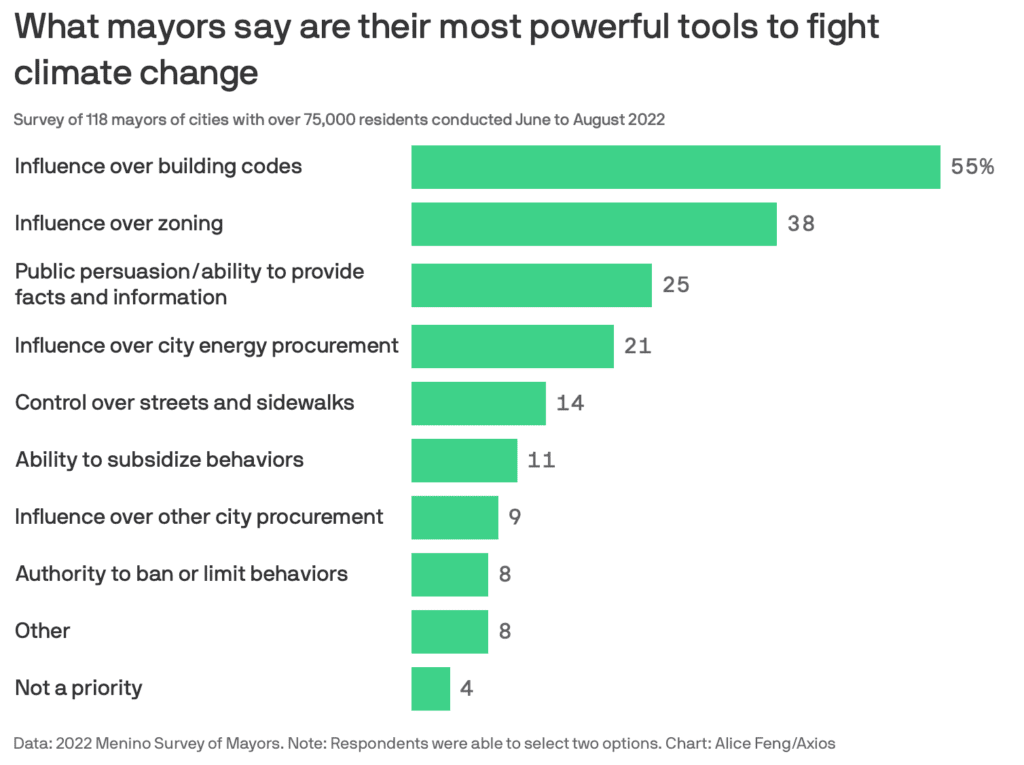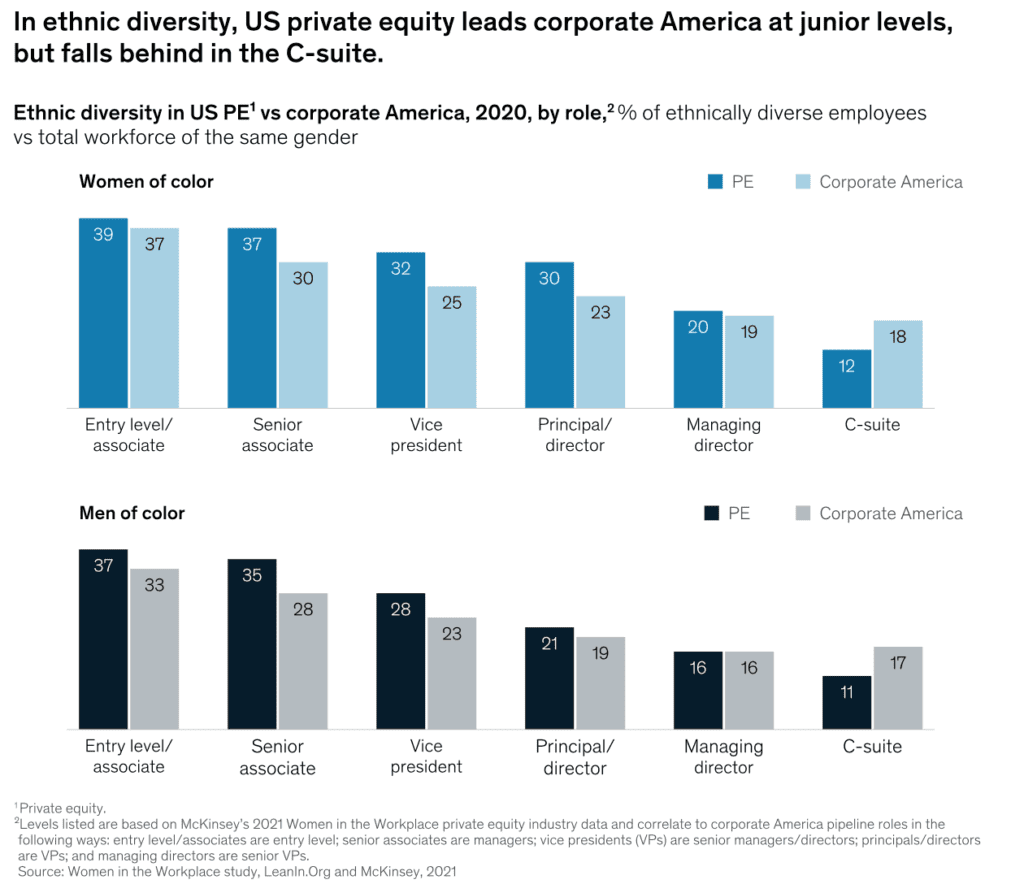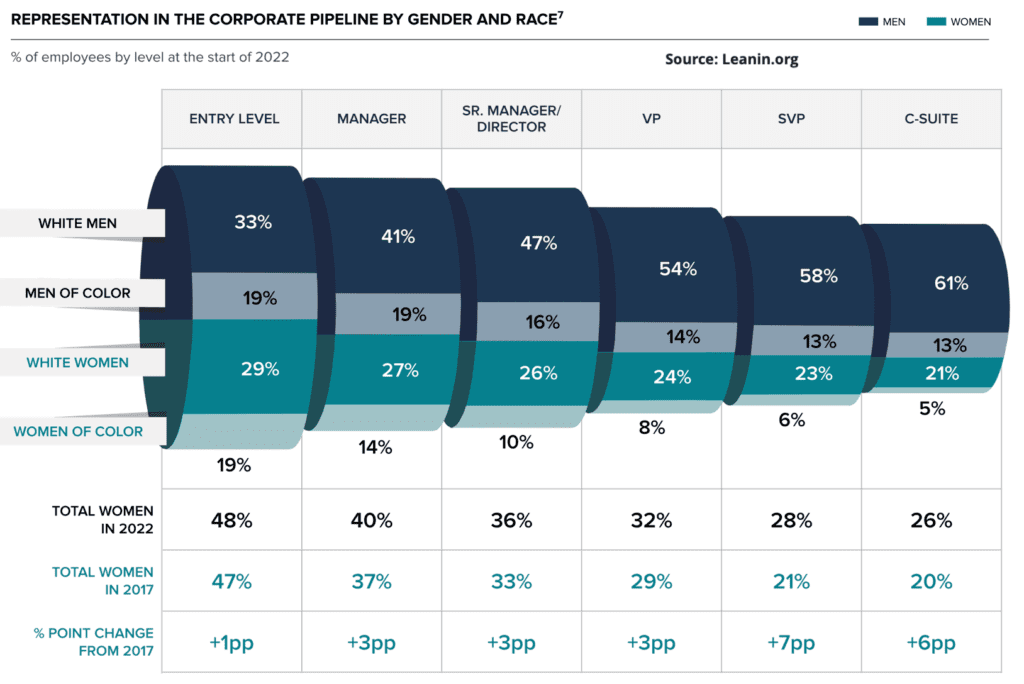
| Hello from Impact Delta. In this edition, we look at the various levels of political engagement for fighting climate change. We'll also see how the best intentions of federal policies can have negative environmental justice impacts. Finally, the business case for diversity at the partner level in PE firms is becoming more acute. Federal vs city level climate action - Although the Inflation Reduction Act (IRA) did have significant federal support for climate initiatives, divisive federal politics continue to constrain policy options. At the recent conference of US mayors, there was significant focus on how cities could take steps to address climate change. The survey that was taken during the conference concluded that mayors would like to do far more to address climate change, however the concern around voter backlash from policies like banning natural gas stoves or gasoline powered leaf blowers typically precluded these interventions. Instead, they tended to use building codes and zoning as the most effective approach. |

| State level not immune to political realities either - At the state level, unusual bedfellows arise from rather hypocritical polices. Kentucky is a case in point, having enacted several 'anti-woke' laws, including the ban on state capital invested with financial firms that are 'boycotting' fossil fuels. And yet, there was great fanfare for the launch of a new Nucor green steel plant (with significant tax breaks from the state), despite the fact that the main customer for this green steel plant will be the offshore wind industry. So, while the state legislature is protesting the lack of capital for their fossil fuel industry, Kentucky is simultaneously subsidizing the development of an industry that will displace fossil fuels. Environmental justice challenged by unintended consequences – In some areas where the federal government has leaned into supporting climate change actions, the design of the programs can have unintended consequences on low income populations. Electrifying school busses is an example where the IRA language is tricky, as the school districts must own their fleets to be able to identify which diesel busses are being 'scrapped' in favor of an electric alternative. Many lower income school districts do not own their busses and therefore do not have control over electrification. Consequently, the low-income neighborhoods that typically have lower air quality are likely to continue to lag behind wealthier areas that can make this conversion. GPs have a diversity promotion and retention problem, not a pipeline problem - The push for diversity, equity and inclusion across corporate America continue to grow (slowly). The consequence for PE firms is now becoming more material. While a partnership of all white males that largely attended the same 10 universities may have been an advantage when the C-suite and investors of target companies were also white males from those 10 universities, the demographics of corporate America and asset owners is changing. The latest data shows that PE firms are able to hire diverse junior professionals, but continue to lag corporate America in diversity at the leadership level. We will be curious to see how existing top-performing PE firms that haven't addressed their promotion and retention challenge perform in future years. Our hypothesis is that access to the best transactions will be correlated with the heterogeneity of a partnership, especially as corporate leadership becomes more diverse. |


Best wishes for 2023!
The Impact Delta Team
contact@localhost
About Impact Delta
A secular shift towards a more responsible capitalism is underway. Impact Delta is a specialist consultancy founded to help investment firms capitalize on this shift. We believe good environmental and social thinking helps investment firms raise capital and earn better returns. More about us here.